Understanding Loan Fees

When buying a home or refinancing a mortgage, many people focus on the interest rate and monthly payments, but it’s just as important to understand the fees that come with the loan itself. Loan fees, also known as lender fees or mortgage fees, can significantly impact the total cost of your home over time. Whether you're a first-time buyer or a seasoned homeowner, having a clear grasp of these charges can help you avoid surprises at the closing table and make smarter financial decisions.
At Crescent Title, we know how overwhelming the home financing process can feel, especially when you’re faced with pages of unfamiliar terms and figures. That’s why we work closely with clients and their lenders to break down every cost associated with their transaction.
What Are Loan Fees?
Loan fees are charges from the lender that cover the cost of processing, underwriting, and funding your mortgage. These fees are different from other closing costs like title insurance, escrow fees, or taxes. While they may be grouped together in your loan estimate or closing disclosure, loan fees are specifically tied to the services your lender provides to make the loan happen.
Understanding loan fees is crucial because they can add thousands of dollars to your closing costs. Knowing what each fee covers and whether it is reasonable or negotiable can give you more control during the mortgage process. It also helps you compare offers from different lenders more effectively, since fees can vary widely even among loans with similar interest rates.

Common Types of Loan Fees
Origination Fee
The origination fee is charged by the lender to process your loan application and create your mortgage. It’s essentially a service fee that covers the paperwork, verification, and coordination required to get your loan approved. This fee is usually calculated as a percentage of the total loan amount, often around 0.5% to 1%, and is typically listed separately on your Loan Estimate and Closing Disclosure.
Even though it may seem like a routine charge, the origination fee can vary significantly from one lender to another. Some lenders may advertise “no origination fee” but offset that by charging higher rates elsewhere. Reviewing this fee alongside other loan terms can help you make a better apples-to-apples comparison between different mortgage offers. Crescent Title always encourages clients to ask questions and evaluate the total cost, not just one number in isolation.
Underwriting Fee
An underwriting fee pays for the process of evaluating your financial profile and determining your eligibility for a loan. The underwriter is responsible for reviewing your credit, income, assets, debts, and the property appraisal to assess the risk of lending to you. This behind-the-scenes work is essential to ensure the loan meets the lender’s guidelines and any requirements from investors or government programs.
Although underwriting fees are common, they are not uniform across all lenders. Some institutions roll them into the origination fee, while others list them as a separate line item. It’s worth checking whether you’re being charged both, and if so, asking your lender why. Understanding what you're paying for (and confirming that you're not being double-charged) can help you avoid unnecessary expenses at closing.
Application Fee
The application fee is an upfront charge to cover the cost of processing your mortgage application. It may include fees related to the initial credit check, pulling financial documentation, and beginning the pre-approval process. While not all lenders charge this fee, those that do typically require it early in the process, and it’s often non-refundable even if you decide not to proceed with the loan.
Because application fees are paid early, before you’ve had a chance to fully compare lenders or review a Loan Estimate, it’s important to ask about this fee in advance. Some borrowers mistakenly assume this fee locks in a rate or guarantees approval, which isn’t the case. Crescent Title recommends getting a clear explanation from your lender about what’s included in the application fee and whether it applies to your final loan costs.
Credit Report Fee
A credit report fee covers the cost of pulling your credit history, which lenders use to evaluate your ability to repay a loan. The fee itself is relatively small—usually under $50—but it’s a necessary step in the loan process. Lenders may pull your credit more than once during underwriting to ensure your financial situation hasn’t changed before closing.
While this fee is standard and usually not negotiable, it’s still worth reviewing to make sure the amount matches typical credit reporting costs. Some lenders may build additional administrative charges into this line item, so it’s a good idea to ask for clarification. At Crescent Title, we often help our clients spot inconsistencies like this when reviewing their Loan Estimate and Closing Disclosure documents.
Discount Points
Discount points are optional fees that you can pay upfront to reduce your mortgage interest rate. One point typically equals 1% of the loan amount and can lower your rate by about 0.25%, depending on the lender. Paying points can make sense if you plan to stay in your home for many years and want to reduce long-term interest costs.
Deciding whether to buy discount points depends on your financial goals and how long you expect to hold the loan. It's a trade-off between paying more at closing versus saving on monthly payments. Crescent Title often helps clients weigh these options by coordinating with lenders and reviewing amortization schedules, ensuring you understand the full financial impact of this decision.
Rate Lock Fee
A rate lock fee is charged when you choose to lock in a specific interest rate for a set period, usually between 30 to 60 days. Locking the rate protects you from market fluctuations while your loan is processed, which can offer peace of mind in a rising rate environment. Some lenders offer free rate locks for a limited period, while others charge a fee for longer terms or specific conditions.
It’s important to ask your lender what happens if the loan process takes longer than expected or if you want to switch programs. If your rate lock expires, you could be responsible for additional costs or might have to pay another lock fee to extend it. Crescent Title works with borrowers and lenders to ensure timelines are on track and fees like this don’t catch anyone off guard.
Mortgage Insurance Premiums (If Applicable)
Mortgage insurance premiums are required when borrowers put down less than 20% or use certain loan types, such as FHA or USDA loans. These premiums protect the lender in case the borrower defaults, and they can be charged upfront, monthly, or both. While not technically a fee from the lender, they are part of the overall cost of getting a mortgage.
It’s important to understand whether your loan includes private mortgage insurance (PMI) or government-backed mortgage insurance and how much it will add to your monthly payment. Some borrowers can cancel PMI once they reach a certain equity threshold, while others may have to pay it for the life of the loan. Crescent Title helps clients identify and understand these costs as part of a complete financial review during closing preparation.

